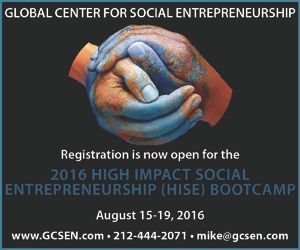The Shift from Extractive to Regenerative
by Anne Pyburn Craig
A 2009 survey of procurement directors cited by Helen van Hoeven of Lean and Green found that 90 percent of corporate procurement directors identified sustainability as “critical or important” to their businesses.
Yet sustainable sourcing, defined by van Hoeven as “a process of buying goods and services that takes into account the longterm impact on people, profits and the planet,” is an investment. It’s crucially important that companies undertaking the journey have access to expert help.
 |
TGI consultant Gregory Landua overlooks a newly revegetated
sand mine with site Manager Erle Rahaman-Noronha, in Barbados.
Copyright 2016 Terra Genesis.
|
That’s where Terra Genesis International (TGI) comes in. The “planetary regeneration consultants” maintain a branch office in High Falls, NY, along with offices in two other US states and in Ecuador, Thailand, Belgium, and Mexico. Their goal: to shift a billion dollars worth of purchasing power into the service of global regeneration.
According to the TGI website, Terra Gene
sis “specializes in growing Resource Supply Webs to meet the operational needs of your enterprise’s current supply chain. These supply webs are more productive, more resilient, and can grow to regenerate the ecological and human systems in which they live. The webs focus on direct producer-to-business, producer-to-producer and producer-to-customer relationships that are reciprocal and rooted firmly in the vibrant health of local agricultural ecosystems.”
“The question of ‘how do we make the things we need without doing too much harm’ is the wrong question,” says Ethan Roland Soloviev, the company’s chief financial officer and supply chain designer, who runs the company’s High Falls operation. “That’s coming from a paradigm of ‘do less harm.’ Our paradigm is regenerative; we help companies actually heal, restore, and regenerate the planet while they do what they do.”
It’s multi-faceted work. Soloviev’s activities take him from High Falls to Azerbaijan and Thailand and back, doing orchard design and teaching permaculture courses. A lifelong Hudson Valley native, he holds a bachelor’s in biochemistry from Haverford and an M.S. in eco-social design from Gaia University.
“I’ve been working in permaculture with my own local firm, Appleseed Permaculture, for ten years, and I was looking for a higher leverage point,” he says. “I found out I’m good at working with corporations, taking what I’ve learned from permaculture and applying it to business.” Soloviev is the co-author of Regenerative Enterprise: Optimizing for Multi-Capital Abundance, as well as the President of the Apios Institute for Regenerative Perennial Agriculture and founder of Regenerative Real Estate LLC.
The process of working with a company, he says, is never the same twice, but there are common elements. “There’s an underlying framework but each business will express it uniquely,” he says. “Essentially it’s about shifting from supply chains to supply webs, then establishing a truly regenerative business by taking it one step beyond, to the producer web. So the company, rather than just thinking of everyone supplying them, looks at everyone as producing value for each other. It’s about functional reciprocity.”
To fulfill their mission, he says, “we approach the situation from two primary angles. The first is that we work with companies, from multinationals to startups, who need to procure ingredients to make their product. We look at how they get them: from where? How are they grown? How are they transported?
“Once we understand their needs, we work with the company to take their supply process from degrading and extractive to regenerative and supportive.” LUSH cosmetics, a firm that maintains two all-organic “cosmetics kitchens” in Canada that supply products to 210 stores in the United States, is a Terra Genesis client.
“They purchase 500 different raw ingredients,” says Soloviev, “honey, blueberries, cacao, butter, jojoba oil, tomatoes, asparagus, mangoes...all kinds of things that go into their fresh handmade cosmetics. They asked us how to transform their whole supply chain so that it sources from regenerative permaculture farms.”
LUSH was founded with sustainability and planetary health as values in the first place, and for them, working with Terra Genesis was a way to kick things up a notch. What do you do when you already shun animal testing and make everything organically by hand? This, it turns out. “We’ve been working with them for two and a half years,” says Soloviev. “They have created a small investment fund within the company to invest in regenerative agriculture and permaculture all around the world, to further improve supply.”
Other Terra Genesis clients include Rak Tamachat Natural Living Education Center in Thailand, Etsy.org, CaCoCo, producers of a “superfood drinking chocolate,” and Cholaca, a Boulder, CO-based purveyor of pure liquid cacao whose products are used in hot and cold drinks by better coffee shops.
“We have team members all over the world, and one of our centers is in northwestern Ecuador in a cacao growing region,” says Soloviev. “Our Terra Genesis CEO Gregory Landua was able to bring Cholaca executives and board members down there to see the agricultural and forestry systems involved. They got to see and experience both the bad production methods and the permaculture way, and it has become a big part of their brand storytelling.
 |
Agroforestry systems, which integrate edible trees and plants,
function at the highest level of biodiversity and ecosystem services.
Copyright 2016 Terra Genesis.
|
“Ultimately the deeper work is not just to change the supply chain, but to grow and evolve the companies so they can make decisions regeneratively going forward. Part of that is bringing people to the actual source of supply and inviting them to engage on the ground with the people, the community, and the agriculture. It’s not always easy for people to see and experience.”
“CaCoCo includes the most masterfully grown cacao on the planet, sourced directly from Ecuadorian farmers using beyond-organic practices,” says Cacoco’s website with pride. The product is kept unroasted and raw to preserve natural antioxidants and “uplifting bliss chemicals.”
“We like to take a developmental approach, constantly growing ourselves as humans and inviting everyone in the companies we work with to do that also,” says Soloviev. “Each company has its own unique essence, and its own unique contribution to make in changing systems to regenerative ones. There is no checklist that fits everybody. We are seeking to heal and regenerate whole living systems, and those never look the same from one place to another. What we do know is that a rote mechanical approach won’t work on any level; that’s not how the world works.”
The other prong of the Terra Genesis picture involves building sufficient permaculture supply-side resources. “We also work on supply, growing, and landscape,” says Soloviev. “We’ve helped many clients to design and develop permaculture landscapes and farms to grow regenerative materials. The aim, what we design for, is economic sustainability. We look for crops that are economically viable to integrate into agroforestry and permaculture systems.
“Walker’s Reserve, a client we have had for many years is regenerating a sand mine that’s now in the process of becoming a food forest in Barbados, and some of the folks who had been working in the mine have taken permaculture courses and are using what they’ve learned in restoring the local environment, aligning that effort with the larger agricultural movement on the island.”
Permaculture has become a global language, Soloviev says, and although it is not yet universally spoken, outposts exist everywhere. “The reception our team gets in Thailand is pretty much like it is here—mixed. Some don’t get it yet. Others get it instantly, because they’ve been doing it that way forever.”
Overall, he says, “There’s a shift happening—growth and evolution. We never work alone; we are always partnering and team building, working with local movements, governments, and universities. One important aspect of this is choosing the right perennial edible crops for the given ecosystem.”
Soloviev is a board member at The Apios Institute, a collaborative network of farmers, gardeners, and researchers focused on integrated perennial-crop polycultures such as tropical home gardens, food forests, and forest gardens. They are currently running a crowdfunding campaign on Indiegogo to upgrade their online wiki to include information and growing advice for over 1400 useful perennial crops for around the world.
In building a business, finding a permaculture supply chain is not just the right thing to do but the smart thing to do. “The case for sustainability in sourcing is even stronger in times of economic recession than at other times,” writes van Hoeven. ”First, any reduction in the company’s demand for commodities, such as energy, transport, waste disposal, and packaging, will lead to direct contributions to the bottom line results. In addition, a focus on sustainable sourcing usually leads to transparency in the supply chain. Transparency will enable you to further optimize your supply chain and to secure it in the long run, both in terms of volume and quality. Procurement professionals should be championing sustainability at the board level to help their companies survive and thrive.”
The vision of Terra Genesis is one in which that surviving and thriving process includes not just particular companies, but the whole of the Earth herself. And they’re getting somewhere. “One other effect is that we’ve become experts in the type of farming that actually catches carbon and sucks it right out of the air,” says Soloviev happily. “So our farms become carbon sinks that actually make both the soil and the air better.”
Terra Genesis offers five levels of engagement ranging from helping entrepreneurs connect with investment and supply chain partners through transformational education, on up to something they call Multi-Capital Enterprise Ecosystem Regeneration.
To learn more, visit www.terra-genesis.com or call 518-610-1375. To donate to the Apios Institute campaign visit https://www.indiegogo.com/projects/crops-to-stop-climate-change-a-global-wiki--2#/.




